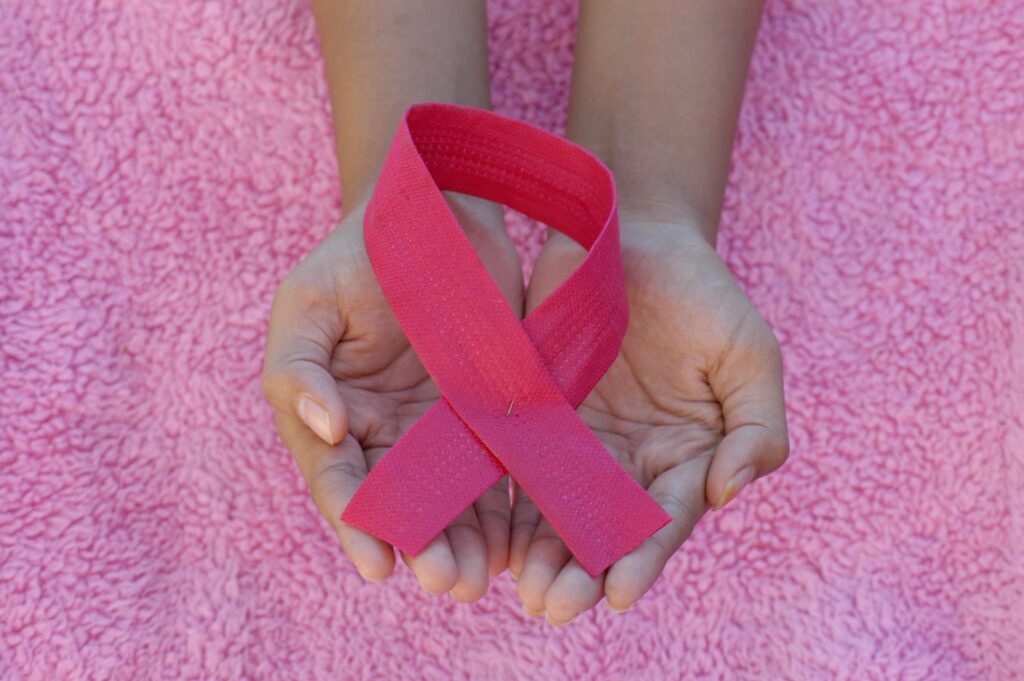Finding Balance in Modern Healthcare

For over thirty years, I worked as a healthcare professional and radiation therapist in the Bay Area, California. When I first started, writing in a patient’s chart required a pencil—yes, a pencil. We used white-font pencils to meticulously fit all the necessary information onto the treatment sheet in a hard-paper chart. These charts were filed in drawers and bookshelves, a far cry from today’s digital systems. A decade later, computers began revolutionizing healthcare. They offered significant advancements but also caused chaos whenever they went down. Despite the challenges of adapting to machines, we humans managed to persevere and gradually witnessed how technology surpassed our abilities. In school, I learned to calculate treatment plans by hand, relying heavily on memory and manual computations. Fast forward two decades and students graduating from radiation therapy programs no longer need to perform complex calculations; the software does it for them. The human brain’s role has shifted dramatically. In just one department I worked in, three different types of treatment software were introduced within ten years. While some upgrades offered marginal differences, software companies excelled at marketing their products. Medical departments purchased these programs to stay competitive and attract more patients, even when the actual benefits were minimal. The Rapid Pace of Change The relentless pace of technological advancements created a growing gap between my generation and the newer one. Now that I’ve stepped away from the fast-moving life of healthcare, I still find myself wrestling with the same dilemma: Where do we draw the line to ensure machines don’t completely take over, dehumanizing our lives? At large medical establishments, I’m often given the option to check in for appointments via my phone. If I decline, I’m greeted by a kiosk that processes payments and checks me in without any human interaction. Over the years, I’ve noticed fewer people in waiting rooms, fewer receptionists welcoming patients, and more machines replacing human roles. The Human Touch I don’t know about you, but I miss the personal touch. I miss conversations with the person behind the desk who might offer an encouraging word. I miss knowing my insurance premiums were supporting a human employee. I miss the days when doctors sat across from us, engaged in genuine conversations, and truly listened, instead of focusing on their computer screens to take notes. I miss being fully examined by a physician, rather than relying solely on bloodwork or imaging results. Now, my doctor begins visits by asking for consent to record our conversation via an AI device. This shift makes me feel more anxious than before because so much of the human care I once relied on has been lost in translation between humans and machines. In the past, my doctor and I would exchange personal stories, fostering a connection that went beyond the clinical. I’d leave feeling cared for, understood, and connected to a human member of my medical team—not just a series of machines. Reclaiming Human Connection Next time you visit a doctor, take a moment to notice how important it is to connect with another person. Whether it’s a patient, a receptionist, or the physician, human rapport matters. Take the time to say hello, smile, or greet someone who might need a moment of connection. These small gestures remind us that while technology has its place, it should never replace the essence of human care. Namaste, Shab
Psychological Support – The Role of Mental Health Professionals in Your Care

In our last discussion, we explored the emotional impact of breast cancer treatment, emphasizing the importance of addressing these feelings as part of your recovery. This week, we’ll focus on the vital role of psychological support and how mental health professionals can enhance your overall well-being during this challenging time. Cancer treatment is not just physically demanding—it can also take a significant mental and emotional toll. Feelings of anxiety, depression, and stress are common and understandable responses to the uncertainty and demands of treatment. Mental health professionals, including psychologists, counselors, and psychiatrists, are trained to help patients navigate these challenges. They offer a safe and supportive environment where you can express your fears and concerns without judgment. According to the National Comprehensive Cancer Network (NCCN), incorporating psychological support into your care plan can significantly improve your quality of life and treatment outcomes. For example, cognitive-behavioral therapy (CBT) is a widely used approach that helps you identify and reframe negative thought patterns, replacing them with more constructive and empowering perspectives. This can be particularly helpful when managing anxiety or feelings of helplessness. In addition to individual therapy, many cancer treatment centers provide access to support groups facilitated by mental health professionals. These groups allow you to connect with others who understand your journey, share experiences, and learn from each other. Knowing that you’re not alone can bring immense comfort and strength. If you’re unsure about where to start, consider speaking with your healthcare team. They can connect you with counselors or support groups tailored to your specific needs. Online directories and organizations, such as the Cancer Support Community, also offer resources to help you find the right support. Addressing the emotional side of cancer is not a sign of weakness but a proactive step toward healing. By integrating psychological care into your treatment plan, you can build resilience, improve your emotional well-being, and approach each stage of your journey with greater confidence. Next week, we’ll shift our focus to the role of family dynamics and explore how your loved ones can support you—and themselves—throughout your treatment.
Emotional Impact – Coping with the Psychological Aspects of Treatment

Last week, we discussed the journey to normalcy and the importance of ongoing care after completing your radiation therapy. However, the transition into post-treatment life often brings an array of emotions that can feel overwhelming. Breast cancer treatment is not just a physical battle; it takes a significant emotional and psychological toll as well. Acknowledging and addressing these emotional challenges is a vital part of the healing process. Many breast cancer patients experience a spectrum of emotions during and after treatment. Anxiety about treatment outcomes, fear of recurrence, sadness over physical changes, and feelings of isolation are all common. These emotions are natural responses to a life-altering diagnosis and intensive treatment regimen. According to the American Cancer Society, recognizing and normalizing these feelings can be an empowering step toward recovery. Understanding that you are not alone in these experiences can help reduce the stigma around seeking support. One of the most effective ways to manage the psychological effects of cancer treatment is by working with a mental health professional. Therapists, counselors, and psychologists trained in oncology-related care can provide a safe space to process your emotions. They also equip you with tools to handle fear, uncertainty, and stress. Techniques like cognitive-behavioral therapy (CBT) can help reframe negative thoughts and foster a more positive outlook. Even short-term counseling can significantly improve your mental well-being. Mindfulness practices such as meditation, yoga, or progressive muscle relaxation are additional strategies that help manage emotional stress. These techniques are backed by evidence suggesting their ability to reduce anxiety and enhance mood. For instance, deep breathing exercises can provide immediate relief from stress, while mindfulness meditation fosters a long-term sense of calm and emotional resilience. Many cancer centers offer classes or resources on these practices, allowing patients to incorporate them seamlessly into their routines. Another invaluable resource is connecting with others through support groups. Whether in person or online, these groups provide a sense of community and shared understanding. Meeting individuals who have faced similar challenges offers comfort and helps combat feelings of loneliness. The sense of belonging that emerges from these connections can play a critical role in emotional recovery. If reaching out to a group feels overwhelming, consider starting with a trusted friend or family member. Sharing your journey, even in small steps, can help build a support network that reinforces your strength during tough times. Remember that seeking help is a sign of courage, not weakness. Organizations like the Cancer Support Community or Breastcancer.org provide directories of local and virtual support groups tailored to your needs. Finally, maintaining a balance between focusing on your emotional needs and celebrating milestones in your recovery can provide hope and motivation. Journaling, engaging in creative activities, or even planning small celebrations for completing milestones in your treatment can bring positivity into your life. Emotional healing is a process, and it’s okay to take it one day at a time. As we move forward we’ll explore how psychological support provided by mental health professionals can further enhance your recovery. From individual therapy to family counseling, these resources offer critical tools to manage the emotional complexities of your cancer journey.
Post-Treatment Recovery – The Journey to Normalcy and Ongoing Care

After navigating the mid-treatment challenges we discussed last week, you’re now approaching the end of your radiation therapy. This is a significant milestone, but it’s also the beginning of a new chapter in your journey—post-treatment recovery. The transition from active treatment to recovery can be both exciting and daunting as you adjust to life after cancer treatment. The first step in post-treatment recovery is understanding that it’s a gradual process. Your body has been through a lot, and it will take time to heal. Fatigue may linger, and it’s essential to listen to your body and rest when needed. Many patients find that maintaining a healthy diet and gentle exercise can help speed up recovery. According to the American Institute for Cancer Research, a diet rich in fruits, vegetables, and whole grains, combined with regular physical activity, can improve your overall well-being and help rebuild your strength. Ongoing care is also a critical aspect of post-treatment recovery. Regular follow-up appointments with your oncologist are vital to monitor your health and catch any potential issues early. These appointments may include physical exams, imaging tests, and discussions about your overall health. It’s also important to continue any recommended therapies, such as hormone therapy, to reduce the risk of recurrence. Emotionally, post-treatment can be a challenging time as you adjust to life after cancer. It’s not uncommon to experience a range of emotions, from relief and joy to anxiety and uncertainty about the future. Seeking support from friends, family, or a professional counselor can help you navigate these feelings. Next week, we’ll delve into the emotional impact of breast cancer treatment, focusing on coping strategies and resources to support your psychological well-being.
Mid-Treatment Hurdles – Managing Side Effects and Staying Motivated

Last week, we explored the treatment options available for early-stage breast cancer, emphasizing the importance of understanding and choosing the right path for your individual needs. Now, as you progress through treatment, you may face various challenges that require resilience and determination. Mid-treatment can be particularly tough as side effects begin to take a toll and the initial adrenaline of starting treatment starts to wane. Side effects such as fatigue, skin irritation, and emotional stress are common during radiation therapy. The National Cancer Institute recommends several strategies to help manage these symptoms. For example, staying physically active, even with light exercise like walking, can help combat fatigue. Skin care is also crucial—using mild soaps, avoiding tight clothing, and keeping the treated area moisturized can reduce discomfort from radiation-induced skin changes. Staying motivated during treatment is another significant hurdle. It’s easy to feel overwhelmed or disheartened as the weeks go by, but maintaining a positive mindset can have a powerful impact on your overall experience. Setting small, achievable goals for each week can help keep you focused and motivated. Whether it’s treating yourself to a favorite activity, practicing mindfulness, or connecting with a support group, these small steps can make a big difference in your mental and emotional well-being. As you manage these mid-treatment challenges, remember that this is a crucial phase in your journey. Next week, we’ll discuss post-treatment recovery, focusing on the path back to normalcy and the importance of ongoing care.
Early-Stage Breast Cancer – Understanding Your Treatment Options

In last week’s discussion on navigating the healthcare system, we emphasized the importance of clear communication with your medical team. Now, as we delve into the different stages of breast cancer treatment, it’s essential to understand the options available to you, particularly in the early stages. Early-stage breast cancer typically involves a localized tumor that has not spread beyond the breast or nearby lymph nodes. Treatment options at this stage are generally more straightforward, with a focus on eliminating the cancer and reducing the risk of recurrence. Surgery is often the first line of defense in early-stage breast cancer, with options ranging from lumpectomy, which removes the tumor and a small margin of surrounding tissue, to mastectomy, which involves removing the entire breast. Radiation therapy is frequently used after surgery to target any remaining cancer cells and lower the risk of recurrence. According to the American Cancer Society, the combination of surgery and radiation offers a highly effective approach for many early-stage patients. In some cases, additional treatments such as chemotherapy, hormone therapy, or targeted therapy may be recommended based on the specific characteristics of your cancer. For example, if your cancer is hormone receptor-positive, hormone therapy might be used to block the cancer’s ability to use hormones to grow. The key is to have a comprehensive discussion with your oncologist to understand the benefits and risks of each treatment option and to tailor the plan to your unique situation. In some cases, additional treatments such as chemotherapy, hormone therapy, or targeted therapy may be recommended based on the specific characteristics of your cancer. For example, if your cancer is hormone receptor-positive, hormone therapy might be used to block the cancer’s ability to use hormones to grow. The key is to have a comprehensive discussion with your oncologist to understand the benefits and risks of each treatment option and to tailor the plan to your unique situation. As we move forward, the focus will shift to managing mid-treatment hurdles, where we’ll explore how to deal with side effects and stay motivated during the more challenging parts of your treatment journey.
Navigating the Healthcare System – Tips for Communicating Effectively with Your Healthcare Team

Last week, we talked about the importance of comfort during your radiation therapy sessions and the various strategies available to help you stay as comfortable as possible. Now, let’s turn our attention to navigating the healthcare system—a crucial aspect of your cancer treatment journey. Effective communication with your healthcare team is essential in ensuring you receive the best possible care. This week, we’ll provide practical tips to help you communicate effectively and make the most of your interactions with your medical team. Navigating the complexities of the healthcare system can be daunting, especially when you’re undergoing cancer treatment. However, effective communication with your healthcare team can significantly enhance your experience and ensure that you receive the best possible care. The American Cancer Society (ACS) offers several practical tips to help you stay informed and engaged in your treatment. First and foremost, preparation is key. Before each appointment, take some time to write down any questions or concerns you may have. This could include questions about your treatment plan, potential side effects, or the logistics of your therapy sessions. Having a list ensures that you cover all your bases during your visit and helps you make the most of your time with your doctor. Bringing a trusted friend or family member to your appointments can also be incredibly beneficial. They can provide emotional support, help you remember details, and take notes on important information. According to the National Cancer Institute (NCI), having a second pair of ears can be especially helpful when discussing complex medical information, ensuring that you fully understand your treatment plan and what to expect. Don’t be afraid to ask for clarification if something isn’t clear. Medical terminology can be confusing, and it’s important to understand
The Weight of Caregiving—Caring for My Father

A New Caregiving Role After my father was diagnosed with Transverse Myelitis, my life shifted yet again. Just when I had found some stability after my mother’s passing and the conclusion of my difficult divorce, I was pulled back into caregiving—this time for my father. His sudden partial paralysis brought on by the rare condition left him dependent on others. With him living two hours away, the challenge felt even greater. The Emotional Toll Watching my father struggle with basic tasks was heartbreaking. It stirred up memories of my mother’s illness, reviving emotions I had hoped were behind me. Balancing my father’s needs with my own responsibilities as a mother and working professional quickly became overwhelming. The long drives to his appointments and the coordination of his care consumed much of my time and energy. Emotionally, it felt like I was being pulled back into a cycle I had just escaped. Support from My Brother Thankfully, I wasn’t alone in caring for my father. My brother, a high school math teacher, was incredibly supportive during this time. Despite his own demanding schedule, he often stepped in to help with Dad’s care, taking on many responsibilities that would have been impossible for me to handle alone. He was also instrumental in offering me much-needed emotional support, helping me talk through the guilt, stress, and exhaustion I felt. His presence made the burden more bearable, and I’m not sure how I would have managed without him. Balancing Career and Caregiving Though I had rebuilt my career and life after the divorce, my father’s needs began to affect my ability to focus at work. Weekends that had once been for family time or personal recovery became devoted to managing his care. The strain on my career and personal life was undeniable, and I felt the same juggling act I had endured with my mother’s illness repeating itself. Finding Moments of Relief Exercise remained a critical outlet for me. Whether it was a long walk or a tough workout, it gave me a way to release the stress of caregiving. I also leaned on close friends and, of course, my brother for emotional support. This network of support made a difficult time more manageable and reminded me that I didn’t have to go through it alone. Letting Go of Guilt There were moments of frustration—feelings of resentment not towards my father, but towards the situation itself. After years of building myself back up, I was again navigating the exhausting world of caregiving. Accepting those mixed emotions, and sharing them with my brother, helped me let go of the guilt and realize that feeling conflicted didn’t mean I wasn’t a good daughter or caregiver. Moving Forward, One Day at a Time As my father’s condition progressed, I tried to focus on the time we had together rather than the overwhelming demands of his care. With my brother’s help and the support of professional caregivers, I learned to prioritize what truly mattered. Though caregiving was still difficult, it became an act of love rather than a burden, and I began to move forward—one day at a time.
Comfort Measures – Techniques and Tools to Enhance Your Comfort During Sessions

Building on last week’s discussion of how your health and tumor characteristics influence your personalized treatment plan, it’s equally important to focus on your comfort during radiation therapy. Comfort plays a significant role in ensuring that your treatment is not only effective but also as stress-free as possible. This week, we’ll explore several techniques and tools that can help enhance your comfort during radiation therapy sessions. Undergoing radiation therapy can be physically and emotionally challenging, but there are numerous strategies available to enhance your comfort during treatment sessions. Leading cancer treatment centers like the Mayo Clinic place a strong emphasis on creating a soothing environment for patients. From the moment you enter the treatment room, every effort is made to help you feel relaxed and at ease. Some facilities offer calming music, soft lighting, or even the option to bring a comforting item from home, like a favorite blanket or pillow, to help you feel more comfortable during your sessions. Proper positioning during radiation therapy is crucial not only for the effectiveness of the treatment but also for your comfort. During your initial planning session, known as simulation, your medical team will work to ensure that you are positioned in a way that allows the radiation to be delivered precisely to the tumor while minimizing discomfort. This might involve the use of custom molds, cushions, or other devices to help you stay in a stable and comfortable position throughout each session. In addition to physical comfort, managing anxiety is an important aspect of your overall well-being during treatment. Techniques such as deep breathing, mindfulness, or guided imagery can be very effective in helping you stay calm and focused. Some patients find it helpful to practice these techniques before their sessions to reduce stress and anxiety. Many treatment centers also offer access to support services, such as counseling or relaxation therapy, to help you manage the emotional aspects of your treatment. For patients undergoing radiation therapy to the chest area, breathing techniques like deep inspiration breath hold (DIBH) can be particularly beneficial. This technique involves taking a deep breath and holding it during the radiation delivery, which can help move the heart out of the radiation field, reducing the risk of heart damage. It’s a simple yet effective way to enhance both safety and comfort during treatment. Finally, it’s important to communicate openly with your radiation therapist about any discomfort or concerns you may have during your sessions. Whether it’s adjusting the temperature in the room, changing your position slightly, or taking a short break, your therapist is there to help make your experience as comfortable as possible. Remember, your comfort is a priority, and there are many ways to ensure that your treatment is as smooth and stress-free as possible. Next week, we’ll shift our focus to navigating the healthcare system, exploring practical tips on how to communicate effectively with your healthcare team to ensure you get the most out of your treatment.
Factors in Personalization – How Your Health and Tumor Characteristics Guide Your Plan

Last week, we explored the importance of personalizing your radiation therapy plan to ensure that it’s tailored to your unique needs. This process is not just about where and how your treatment is delivered, but also about considering your overall health, lifestyle, and personal preferences. Now, let’s delve deeper into the specific factors that influence how your treatment plan is personalized, including your tumor’s characteristics and your overall health. When it comes to personalizing your radiation therapy, several important factors are taken into account. The characteristics of your tumor, such as its size, shape, and location, are primary considerations. For example, a tumor located near vital organs, like the heart or lungs, may require more advanced techniques, such as intensity-modulated radiation therapy (IMRT) or proton therapy, to minimize exposure to surrounding healthy tissues. These advanced techniques allow for highly precise targeting of the tumor, reducing the risk of damage to critical organs. Your overall health is another significant factor in creating a personalized treatment plan. According to guidelines from the National Comprehensive Cancer Network (NCCN), patients with pre-existing conditions like heart disease or diabetes may need adjustments to their radiation therapy to avoid exacerbating these conditions. For example, if you have a history of heart disease, your oncologist might use a technique called deep inspiration breath hold (DIBH) during radiation treatments to help protect your heart from unnecessary radiation exposure. Age and physical fitness also play a crucial role in determining the intensity and duration of your therapy. Younger, healthier patients might tolerate more aggressive treatment approaches, while older patients or those with other health concerns might benefit from a gentler approach. This careful balancing act ensures that your treatment is as effective as possible while also being safe and manageable for you. In addition to these clinical factors, your treatment plan may also be influenced by how your body has responded to previous cancer treatments, such as surgery or chemotherapy. If you’ve undergone surgery, for example, the presence of surgical scars or changes in tissue density may affect how radiation is delivered. Your medical team will take all these factors into account to create a plan that is uniquely tailored to your situation. Finally, the concept of personalization extends beyond just the technical aspects of treatment. It also involves considering your emotional and psychological well-being. Your team will work with you to address any concerns or fears you may have about the treatment, providing support and resources to help you feel more comfortable and confident in your care. As we move forward, it’s also important to consider your comfort during treatment. Next week, we’ll explore various comfort measures, techniques, and tools that can help make your radiation therapy sessions as comfortable as possible.

